
Prospects of the Consolidation Industry
-

Demand Growth
With the acceleration of globalization and the increasing demand for overseas products by consumers, the cross-border e-commerce market continues to thrive, bringing stable business growth to the consolidation industry.
-

Expected Freight Rate Increases
Due to various factors leading to tight capacity supply, such as decreased vessel turnaround efficiency and port congestion, while demand has not decreased accordingly, consolidation freight rates are expected to rise.
-

Technological Innovation Support
Through the application of technologies such as big data, artificial intelligence, and the Internet of Things (IoT), more efficient operational management can be achieved, such as optimizing route planning and improving vessel scheduling efficiency, thereby enhancing service quality and competitiveness.
-

Policy Environment and Sustainable Development
Governments around the world are introducing supportive policies, such as tax incentives and fiscal subsidies, to encourage logistics companies to transform and upgrade, and promote the application of new energy transportation vehicles.
Our Selling Points

Self-operated Premium Routes
Guaranteed Direct Flight Shipping

Transparent Pricing
Online Estimation with No Hidden Costs

Physical Credit Assurance
Physical Warehouses in Multiple Locations Domestically and Internationally

Self-developed Technical Support
Custom Development is Simple and Easy to Use

Dedicated Customer Service
Patient and Professional Pre-sales and After-sales Service
Why Choose Taocarts Consolidation?

Real-time Tracking of In-transit Information
Real-time tracking from shipment to delivery
Ensure timely feedback of real information, report anomalies immediately, and transparency in transportation

Centralized Financial Management
The system can automatically and accurately generate costs
Strengthen receivables and payables management, and improve cost processing procedures

Effective Cost Reduction in Transportation
Develop optimal route plans and schedules to reduce route planning
Manual intervention in scheduling work to help businesses reduce transportation costs
Empower Enterprises to Achieve Cost Reduction and Efficiency Improvement




Consolidation Operation Process
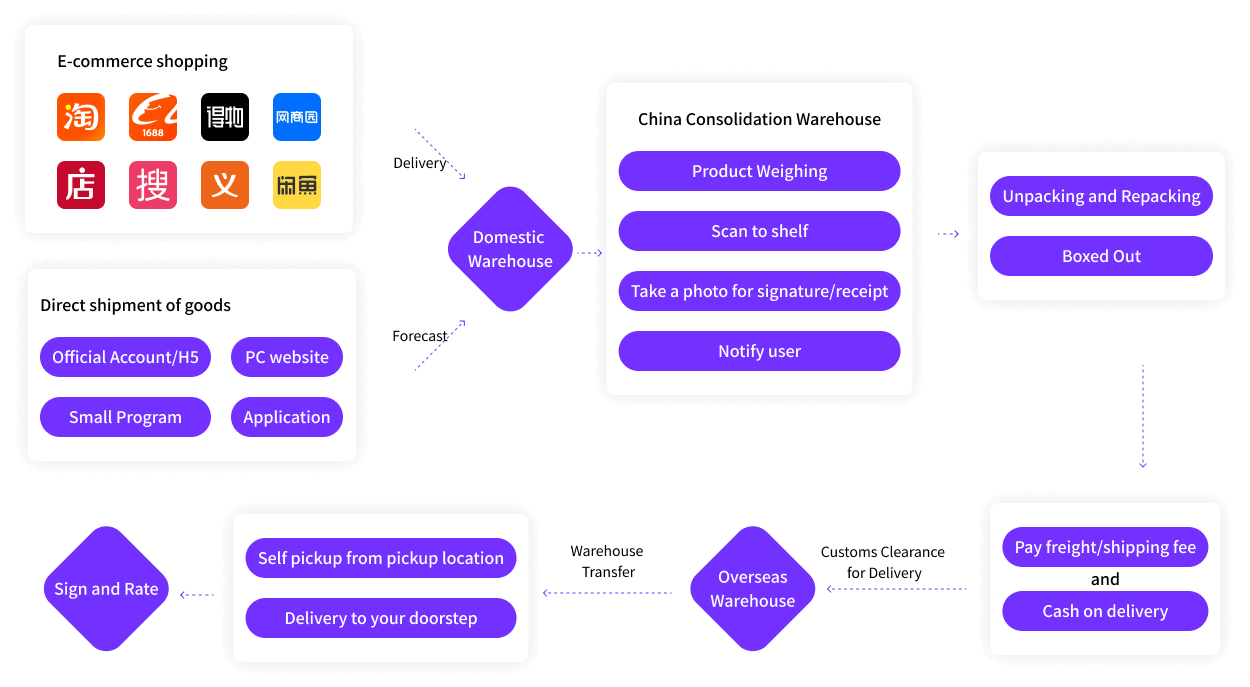
Taocarts Transportation System Structure Diagram
Direct order placement, one-stop connection to merchants, logistics, and carriers. Standardized operations on PC and APP, real-time协同 management across multiple platforms
Zero chance of misdelivery or missed delivery by carriers. Automatic allocation, unified management of merchant orders, and digitalization of transportation contracts
 Customer Management
Customer Management
Customer Information Management
Customer Information Management
Customer Information Management
Customer Information Management
 Settlement Management
Settlement Management
Product Information Maintenance
Distribution Settlement Management
Combination Settlement Management
Inventory Counting
 Inbound Management
Inbound Management
Inbound Task Management
Labeling and Shelves Placement Process for Receipt
Fast Inbound and Outbound Process
Abnormal Order Handling
 Warehouse Management
Warehouse Management
Warehouse Space Management
Intra-warehouse Allocation
Inter-warehouse Allocation
Inbound and Outbound Warehouse Management
 Order Management
Order Management
Order Push
Order Process Handling
WMS Shipping Process
Logistics Transportation
 Order Tracking
Order Tracking
Logistics Company and Channel Management
Logistics Channel Matching Rules
Logistics Freight Template Settings
Logistics Delivery Information
 Reporting System
Reporting System
Order Data Reports
Employee Performance Reports
Billing Reports
 System Functions
System Functions
Role-based Employee Management
Permission Management
Charging Settings
Business Process Configuration
 Special Features
Special Features
Automatic Order Procurement
Seamless Integration with Automated Equipment
 API Interfaces
API Interfaces
Order Management Interface
Settlement Management Interface
Inbound Order Interface
Customer Authorization Interface
Taocarts Transportation Management System Solution
- Automatic Order Assignment
- Order Tracking
- Price Management
- Settlement Management
- Exception Management
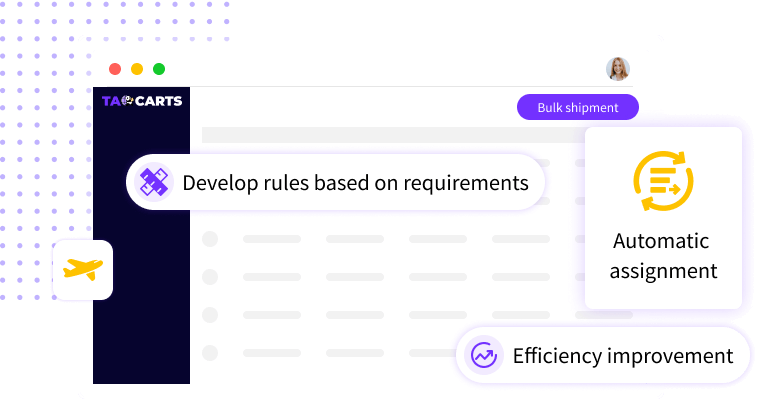
Set order assignment rules, and the system will automatically match carriers when task orders are generated, eliminating manual operations to achieve intelligent and automated order assignment.
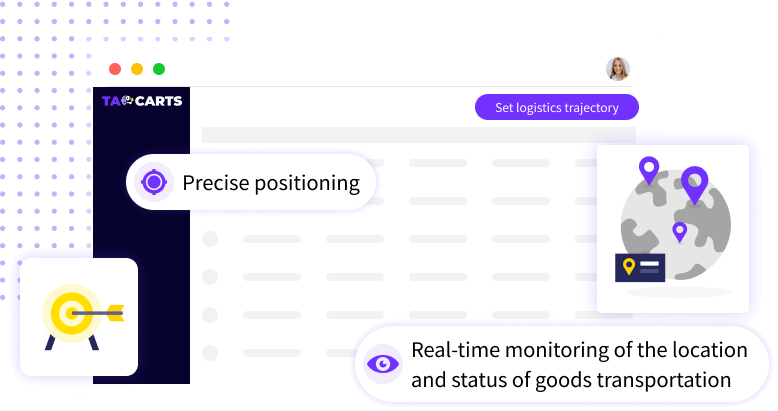
Logistics order tracking involves using specific methods and technologies to query and monitor the location, status, and other information of goods in transit in real-time or at regular intervals.
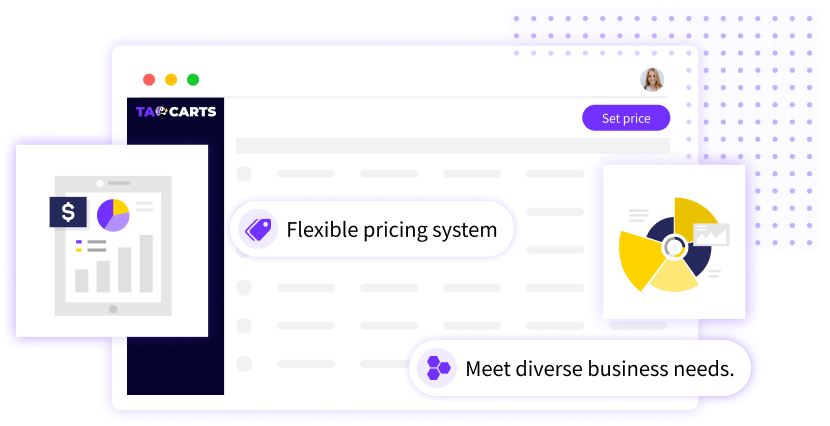
Given the diversity of merchants, carriers, and goods, transportation pricing also varies. Therefore, it is necessary to build diverse price templates based on different needs to facilitate convenient use and efficient management.
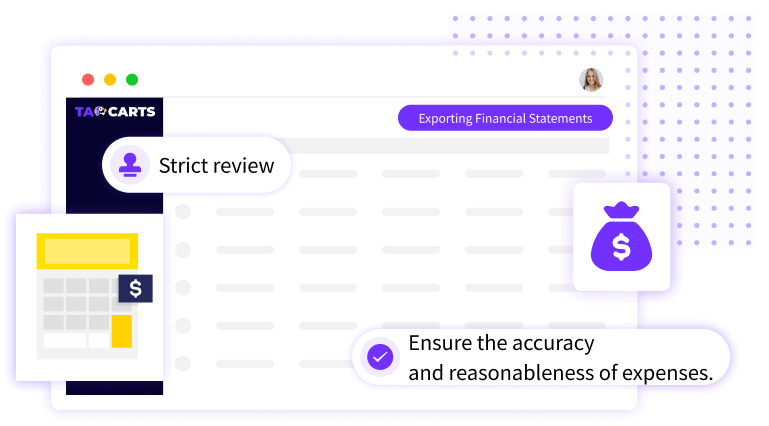
In the settlement management process, order fees are first adjusted and reviewed, after which financial personnel conduct payment and receipt operations based on invoices to ensure smooth cash flow.
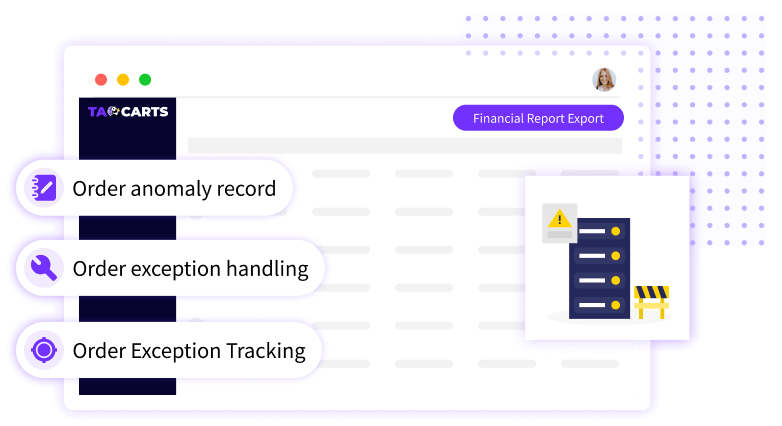
Once an abnormal order is reported, it enters the abnormal management process, where the entire lifecycle of the abnormal work order is managed, including recording details, proper handling, and full-process tracking.
Our company's CIS design, trademark logo, and company name have all been registered with legal trademark copyrights. Any infringement will be prosecuted.。

